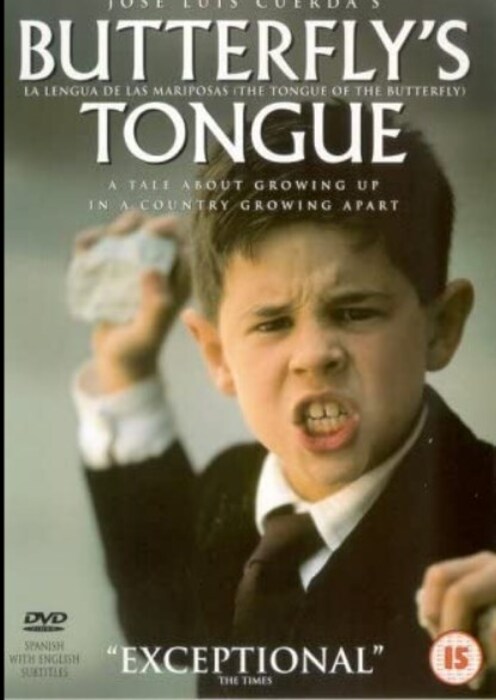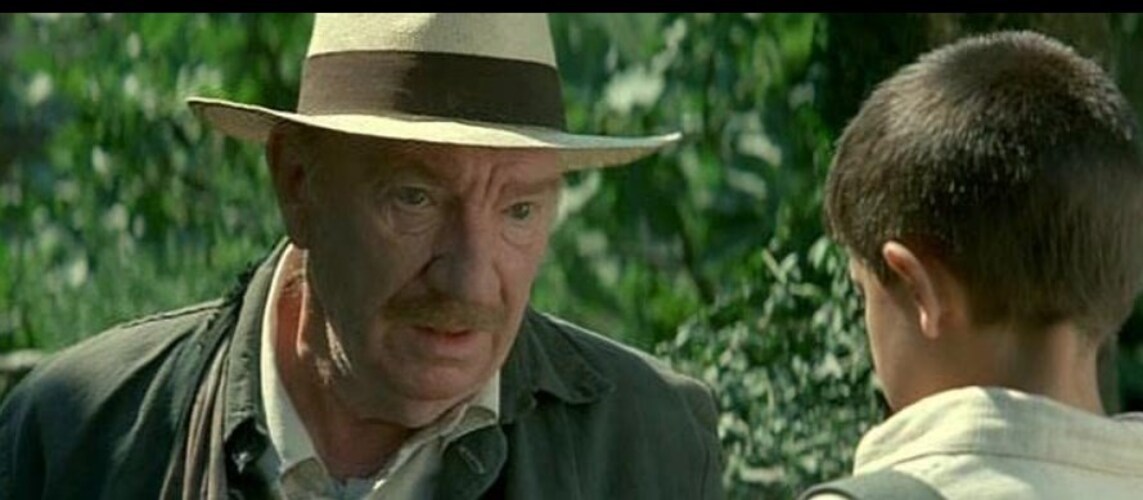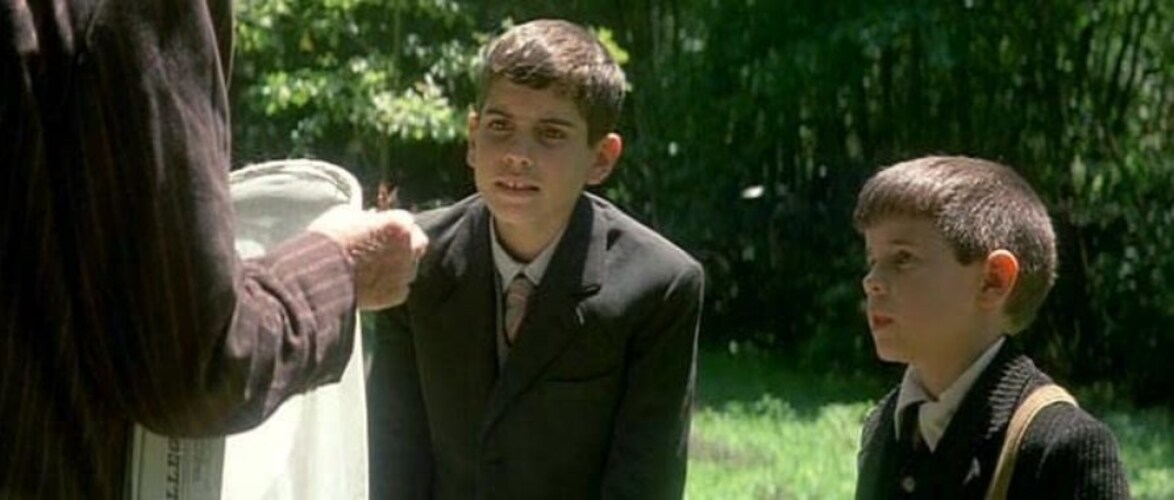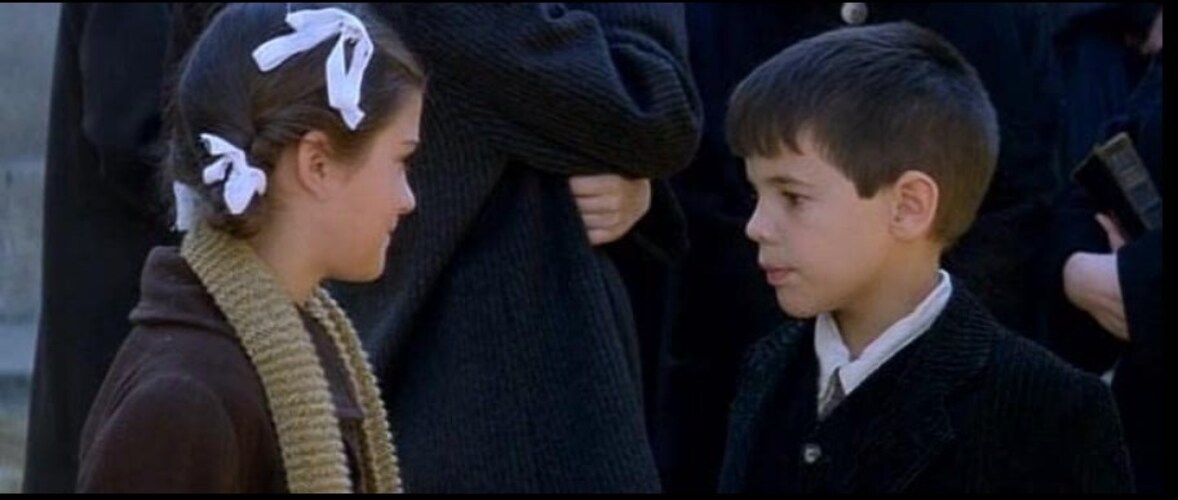Butterfly's Tongue is a beautiful, humanistic, intimate, poetic and moving film. [REVIEW]

Today I want to bring you one of those films that may not remain in the popular memory because of its great production but that have that quality and human warmth that distinguish it from the rest.
With a clear and direct language in a rural environment far from the big cities, in that deep Spain that so well brought to change directors like Carlos Saura and Pilar Miro among many others.
Butterfly's Tongue (La lengua de las mariposas in spanish) is a film directed by José Luis Cuerda that takes us to the daily life of rural life in pre-Franco Galicia.
Plot.

The plot revolves around Moncho, a boy who joins the school "Rosalía de Castro" with some fear.
The teacher Don Gregorio is a severe man, a lover of Antonio Machado's verses, and at the same time extremely concerned about his students acquiring not only knowledge but also moral values.
The Spanish political life is in full turmoil due to the beginning of the Civil War and the teacher, who is a sympathizer of the Second Spanish Republic, tries to conceal his political opposition by devoting himself fully to the teaching of his students, to instill in them that they should not miss lessons (absences often encouraged by their own parents) and to read Machado.
And it is exactly from the great Spanish poet that he takes the example to explain to them (his students) what the language of butterflies means.
And between both, the teacher (a wonderful Fernando Fernán Gómez) and the student who likes to learn to read and write -a very good performance by Manuel Lozano- a very special relationship of camaraderie and mutual respect is established between an adult and a minor.
The final scene is an anthology: after a few years the teacher, arrested for his convictions, goes to the firing squad and the student, although he is not absolutely convinced that it is the right thing to do, throws stones at him like the rest of the people. Not because of the hatred they might have for him, but because of the fear and terror established by the Falangist regime, which made denunciation and hatred its main tool.
The image of Moncho crying with rage for what he is doing is one of the most dramatic I have ever seen in the cinema.
Cast.

Fernando Fernán Gómez: Don Gregorio
Manuel Lozano: Moncho
Uxía Blanco: Rosa
Gonzalo Uriarte: Ramón
Alexis de los Santos: Andrés
My Opinion Of The Movie.

Butterfly's Tongue is a hymn to the task of the rural teacher in a sometimes hostile environment far from the big cities, where his or her work must be based on an open and permanent dialogue between the teachers themselves in the first place and between them and their social environment, the children-students and parents.
It is also a critique of certain school structures of the past that were more concerned with capturing the sympathy of the prevailing political regimes than with implementing a true educational conscience. Environment aside.
The task is dignified when the teacher must work in conditions of extreme poverty. The film is a reading of certain errors of the past in a modern society in which they often go unnoticed.
Images and screenshots: IMDB.

There was something about the facct that the student joined others to throw stones at the teacher that appealed to me. Not because it's right, but it's because it's realistic. Casting stones at the things we also believe in because of our fear. Excellent choice. Thanks for sharing!
Posted using CineTV